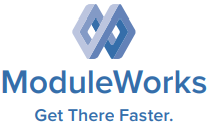What's new in SprutCAM 15
Major updates
Multi-parts projects/Tombstone machining
Added the possibility to machine the several parts in one project. Part is defined in the project as the special group of operations. All operations inside the group a working over one part. Every part can be placed separately and can have its own origin. Added the special mode for the reordering of the machining sequence to minimize the tool changes. Read details here.
Part copies
Added the possibility to make the copy of the part. The part copy contains the copies of operations of the prototype part. There is the possibility to output the copies machining as the subroutine calls.
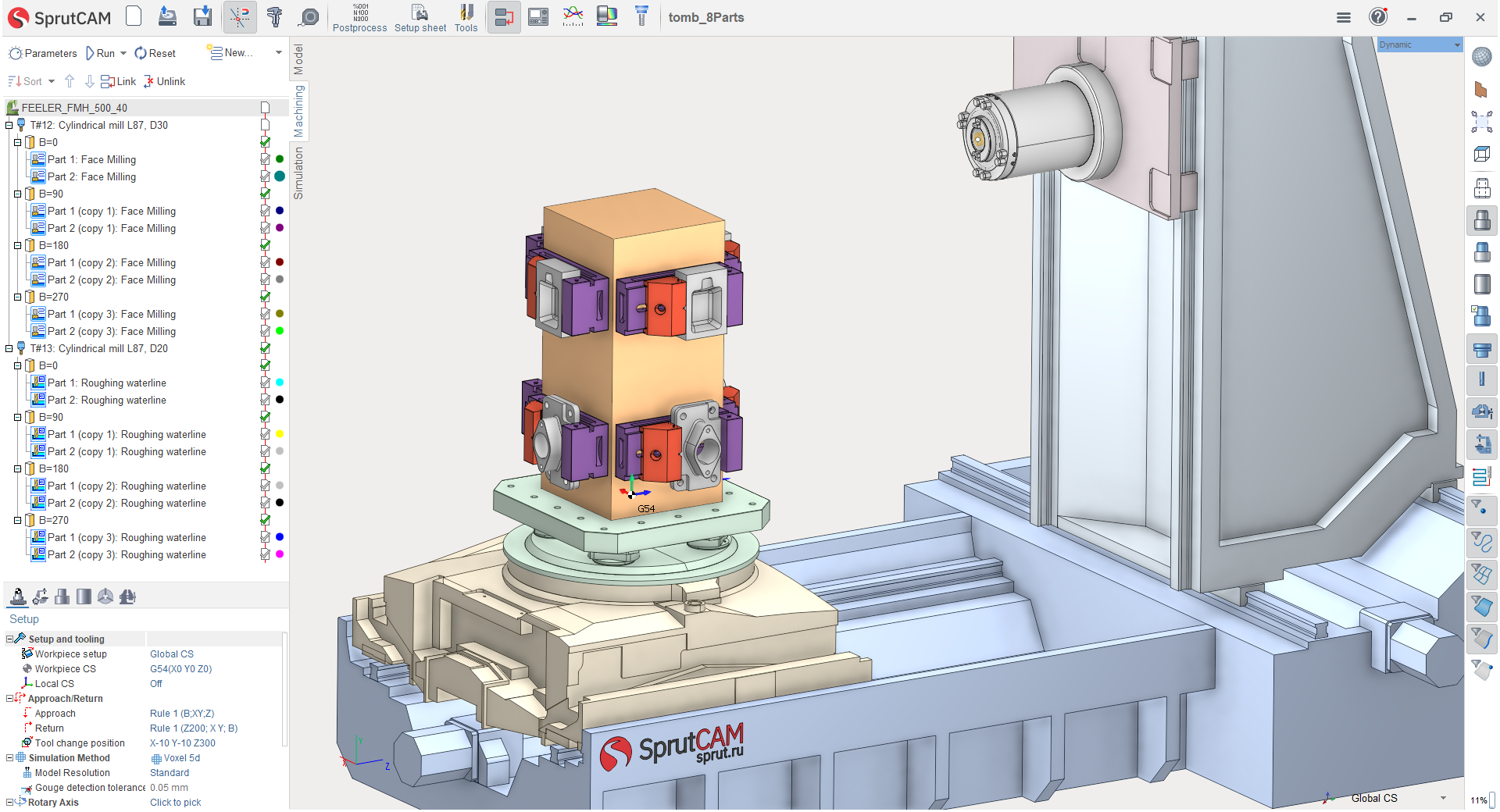
Demo videos:
Setup stages
Setup stage is the special group of operation to machine the once placed part(s). If you need the manual part refixture you need to create another setup stage. A new setup stage contains all the same parts that the previous stage contains. All the parts can be overturned or fixed in another place, but the initial workpiece for these parts are taken as the maching result of the previous stage.
New workflow for multi-task machines (MTM)
The parts totally changed the the way how to create the projects for the multi-task machines (MTM), turning centers with sub-spindle and swiss-type lathes. These kinds of machine-tools usually have two or more channels. Two copies of part is machined simultaneously. One copy of part is fixed in the main spindle and another one is placed in the sub-spindle. New workflow how to program these machines is demonstrated in the video below.
New experimental parametric 3d CAD
Create parametric 3d models using sketch, extrude and revolve. Use them as parts or fixtures.
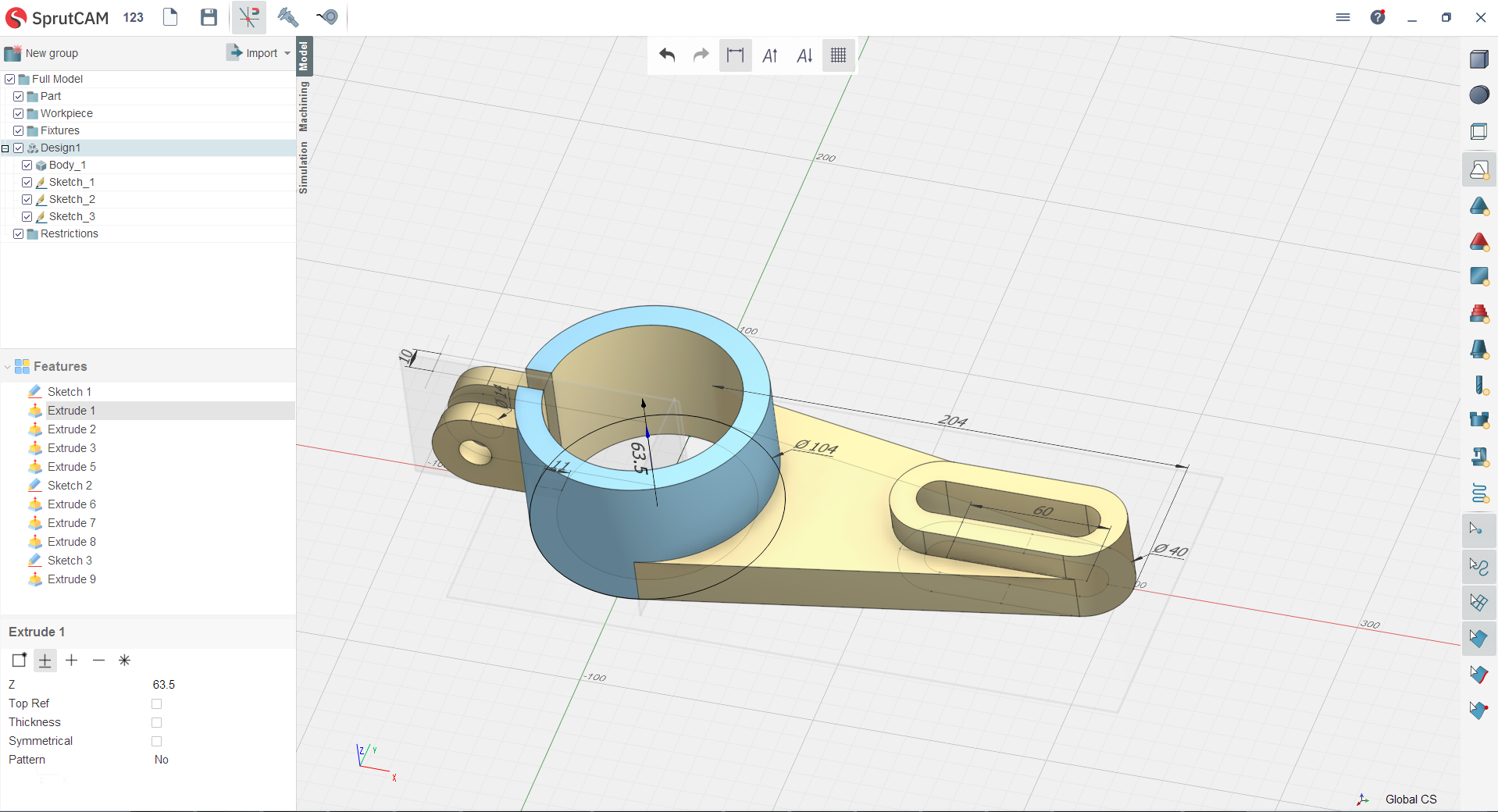
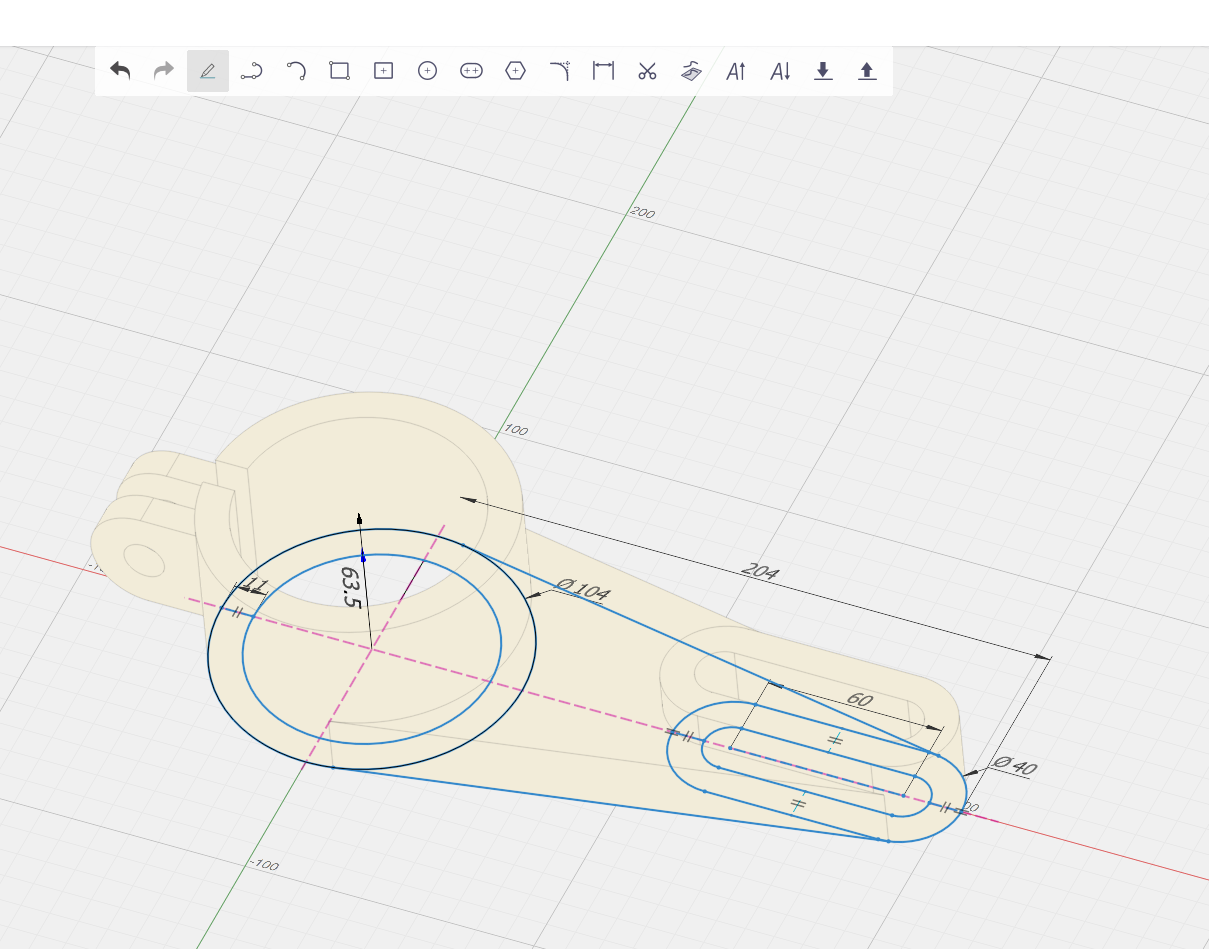
Demo video: New CAD in SprutCAM
MachineMaker 2.0 for Robots
New utility allows you to create Robot schemas with additional axes.
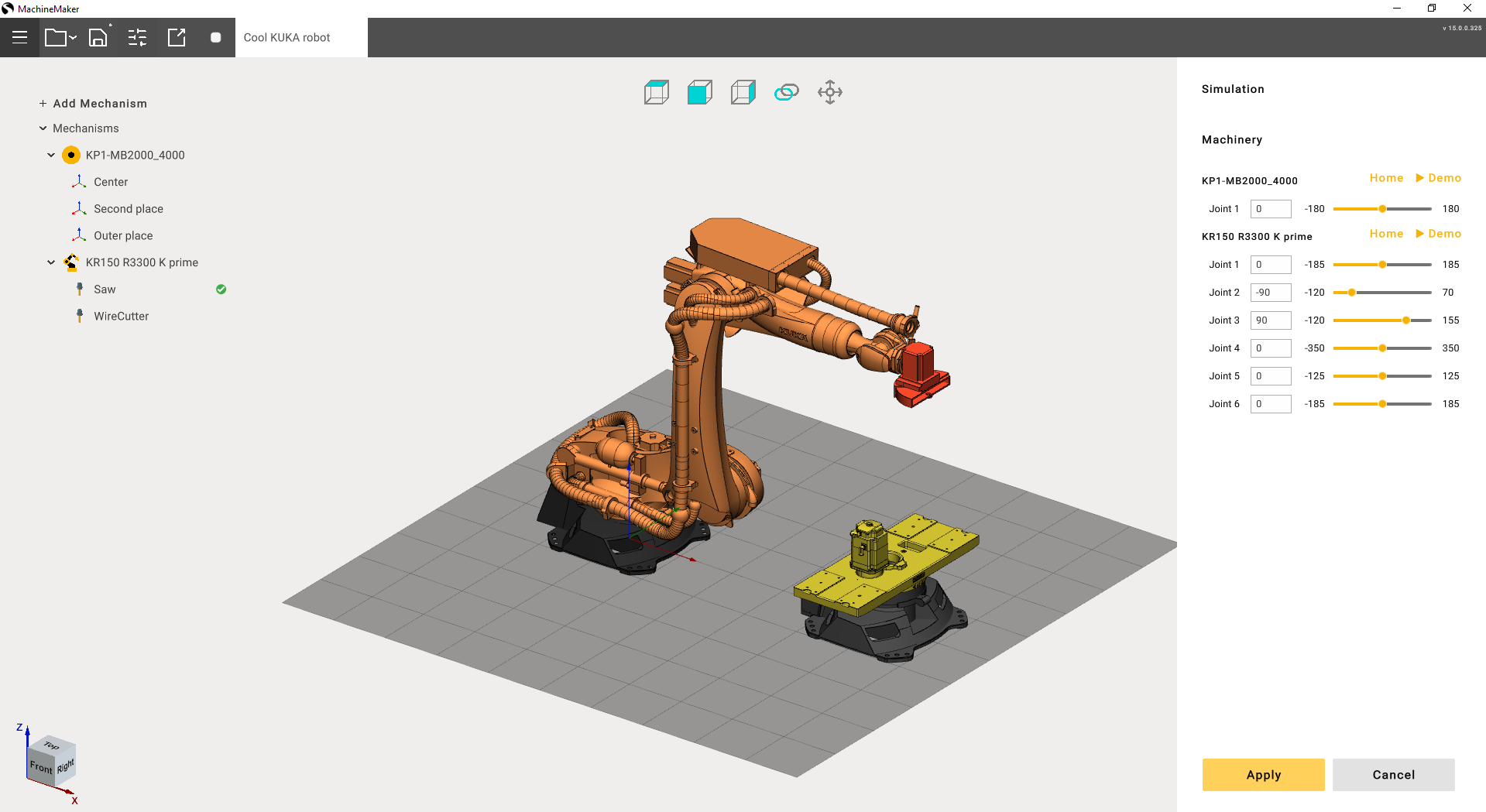
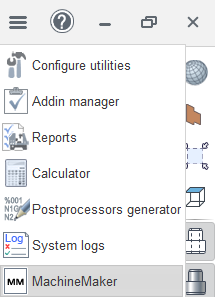
Demo video: Machine Maker 2.0
New generation .NET and Visual Studio Code based postprocessing toolchain
In addition to the traditional Postprocessor generator (which produces *.sppx files), the ability to develop postprocessors using the most modern and fashionable development tools has been added. Now you can make postprocessors of a new type - files with the * .dll extension, which are based on the latest version of the .NET platform and use C# as the programming language. Visual Studio Code is offered as the main development tool. It is incredibly powerful yet lightweight and free (just type "VS Code get started" in the search bar of your browser). Intellisense, documentation right in the tooltips, all sorts of helpers - all of this is now available to postprocessor developers.
The main idea is to combine the familiar concept of the Postprocessors generator with the modern paradigm of object-oriented programming. This provides advantages such as
Easy writing of post-processors that generate many files at the same time.
The ability to append to an arbitrary location in the file, and not just to the end.
Generate nc-files in any encoding.
Multiple independent sets of registers can be created.
Text registers in addition to numeric registers.
Developer defined settings individual for each postprocessor.
Integrated library of functions for geometric calculations.
etc.
This functionality is in alpha stage and should be used with caution. The public API specification is subject to change. For instructions on how to start developing new postprocessors see here.
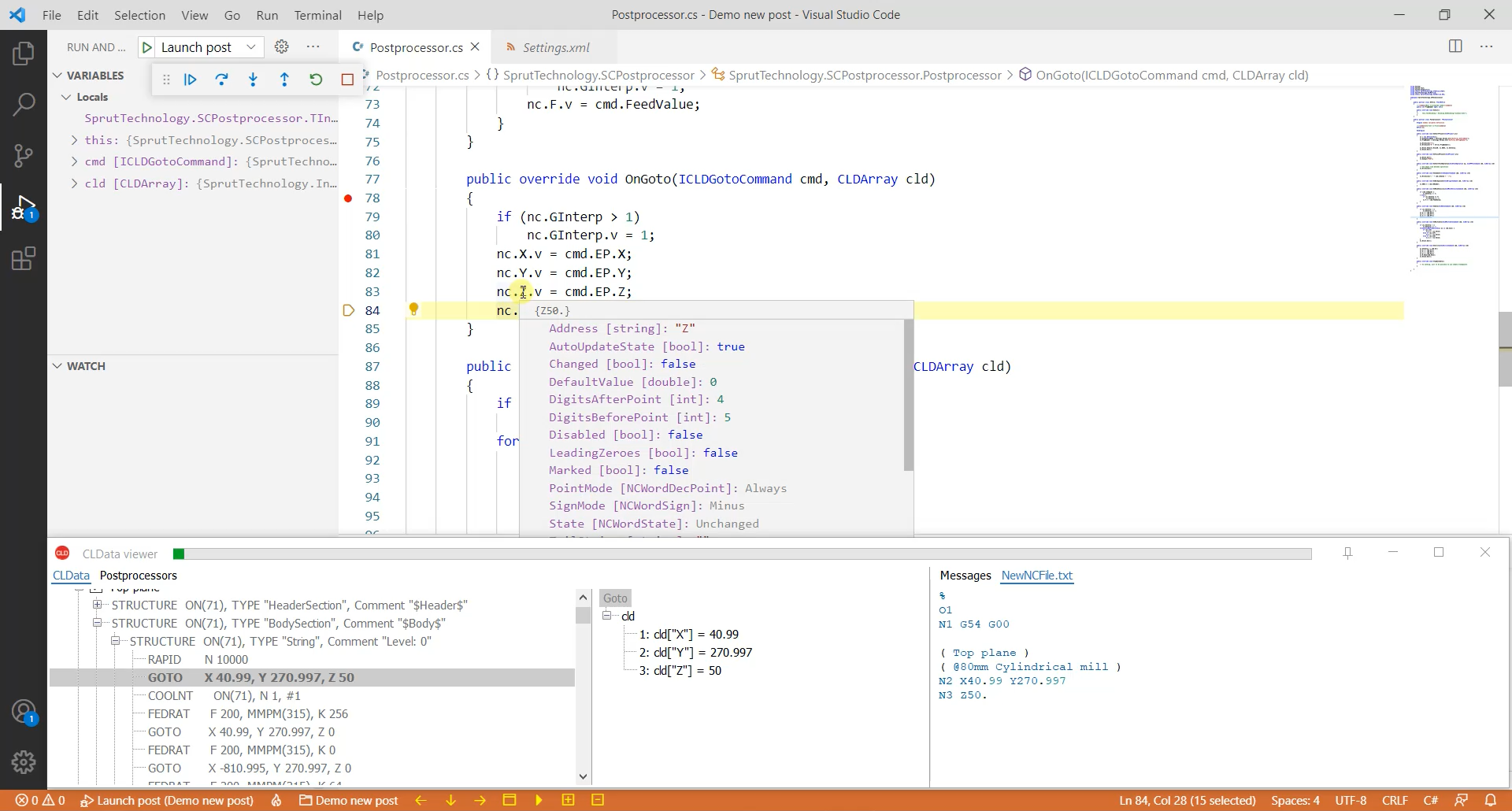
Demo video: .NET and Visual Studio Code based postprocessing toolchain
New tab "fixtures" in the inspector
This feature allows you to add additional equipment to your machine.
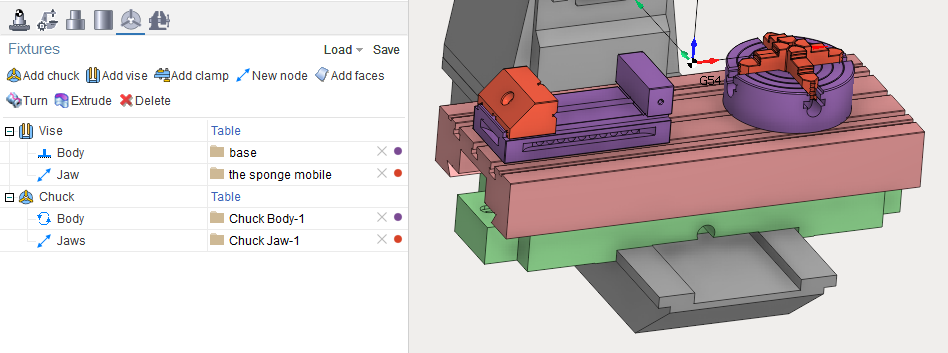
Demo videos: Fixtures1, Fixtures2
"Pick and place" and "take over" operations
The operation is designed to control the gripper tool to move the workpiece inside the job zone of a machine. In total with multi-parts it gives the possibility to create the assembling projects. These operations can be used on the lathes with sub spindle to move the workpiece from one spindle to another one.
Other updates
User interface updates
New mechanism of smart hints behavior and translation
Smart hints now appear on mouse hover.
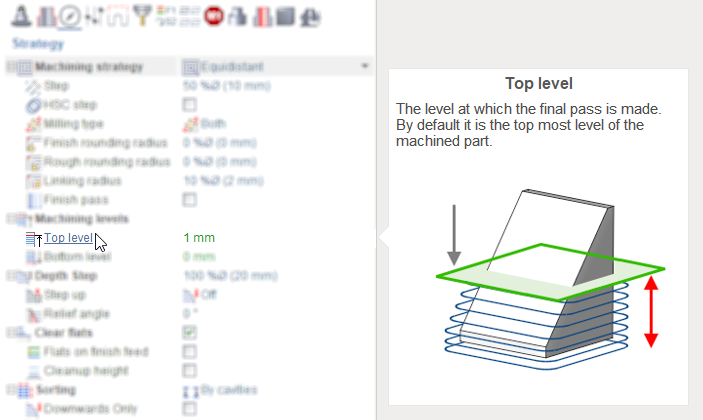
Translation of smart hints moved to "SprutCAM Localizer" webservice.
New Holders library window
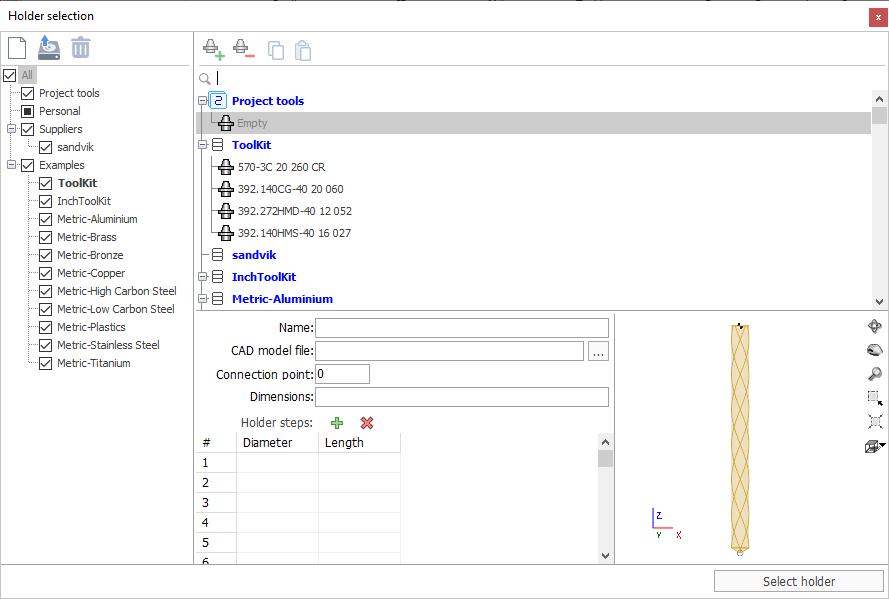
New Holders (3D models) window
I t is possible to add previously prepared holder models from the computer to this window.
P reviously added holders in this window are saved to the configuration file and will be loaded automatically
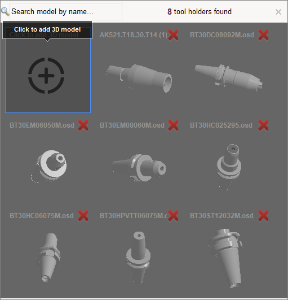
Technology updates
Axis map for 5-axis machines C axis precise handling
It allows to avoid singularities and collisions, explicitly defining the value of C axis for the toolpath. With color in the map is shown minimum possible deviation of tool normal (when C axis value is fixed) from the one defined in the job assignment. The normal deviation map panel allows to define threshold values for these zones. The dotted splines show optimal C axis trajectories (solutions), when there is no deviation from the original normal, with different values of the "Flip table" parameter and shift (360 degrees). More info is available in the documenation page.
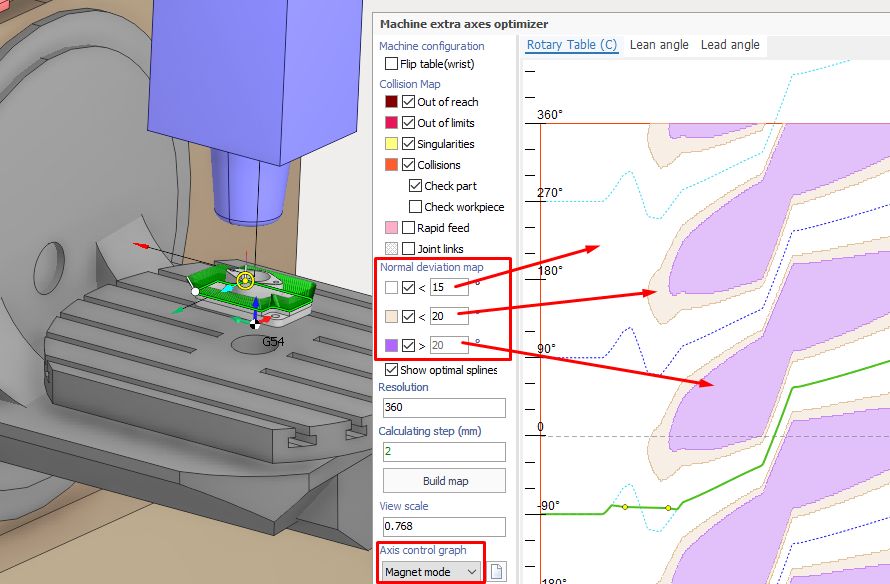
Demo video: C-Axis Map
New behavior for the part and workpiece primitives
Part and Workpiece primitives (parallelepipeds, cylinders, bodies of revolution) are now created in the geometric coordinate system by default. Thus, when the part is rotated, the primitives are now rotated with it. The picture below shows the behavior in previous versions (left) and in version 15 (right).
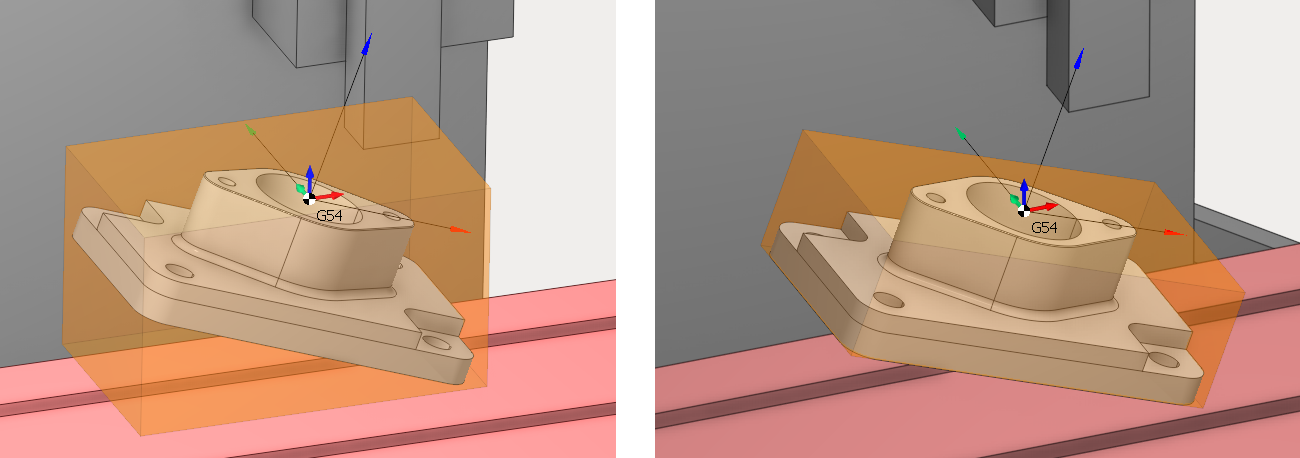
Added Check holder function in the Rotary roughing operation
This option can be used to avoid collisions with part and workpiece. Workpiece is not static: it updates dynamically while tool path calculation take into account upper layers.
It is perfect for sculptures milling.
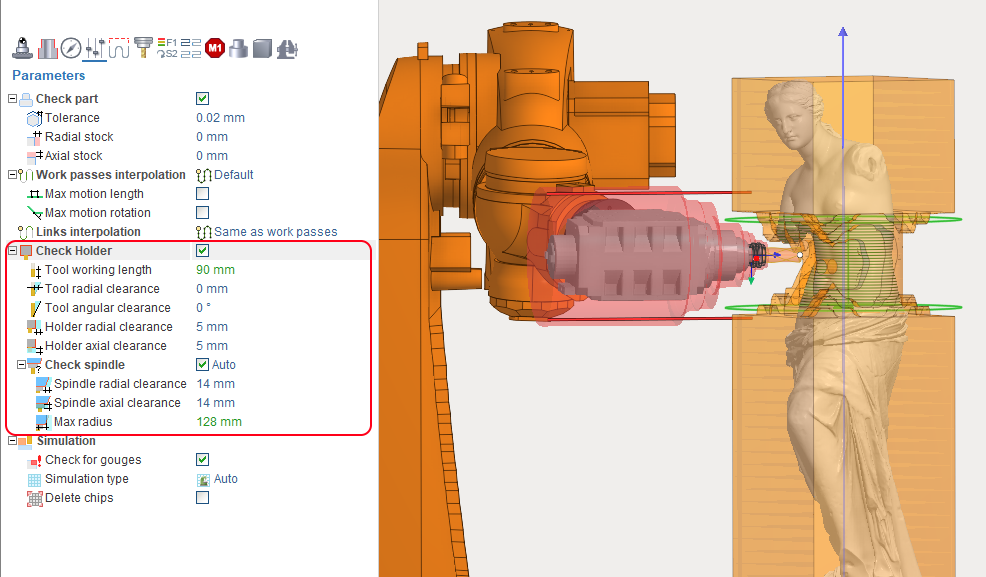
Mill tool shank dimensions added
Three new parameters have been added for basic types of milling tools: Shoulder length (SHL), Shank diameter (SHD) and Shank taper angle (STA).
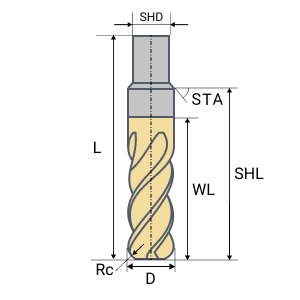
Barrel mills support added
Three new tool types have been added to the Shaped tool group: barrel mill, taper barrel mill and lens barrel mill.
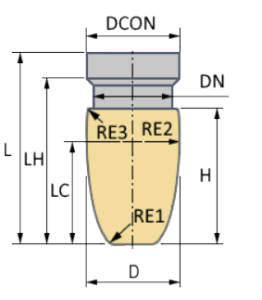
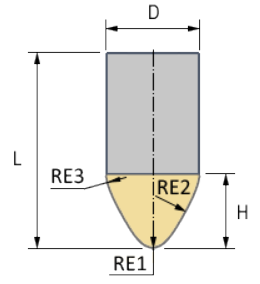
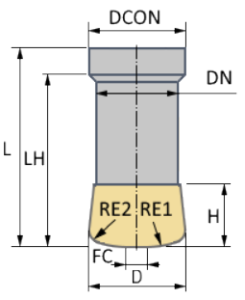
Added Offset pass step for cladding
This attribute allows you to set the distance between offset passes. " Offset pass step " is available only when "Offset pass count" is more than 1.
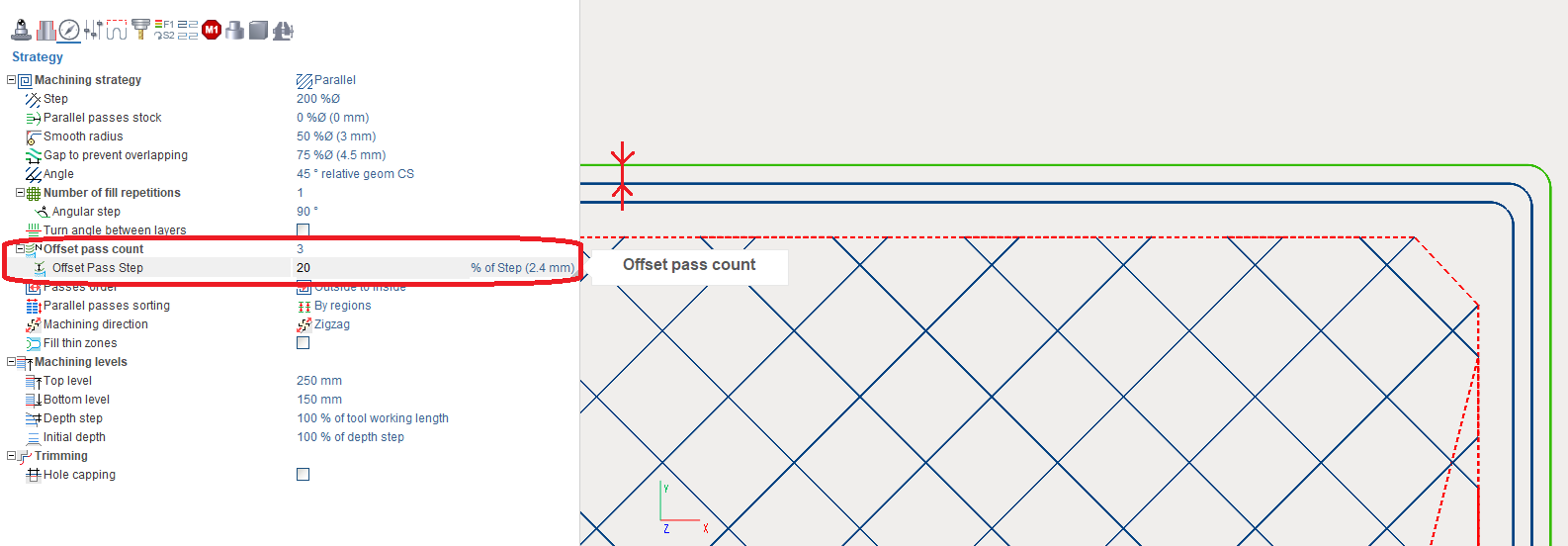
There is three value:
mm ( entered value is calculated in mm )
% Ø ( entered value is a percentage of the tool diameter )
% of Step ( entered value is a percentage of the total step )
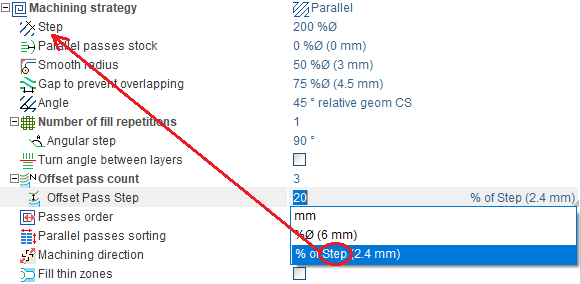
Also you can find information
here
.
"Power" for Cladding 5D operation
This option allows you to change the speed of the extruder depending on the height of the layer.
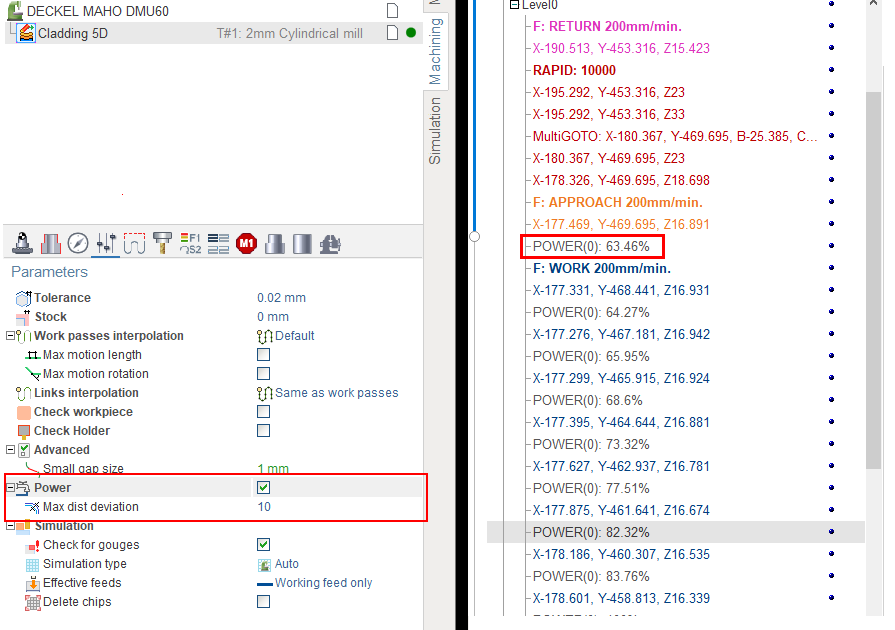
Added Punch distance for Plasma operation
This distance allows the tool to be retracted to the distance required for punching.
There is two value:
mm ( entered value is calculated in mm )
rel. to feed dist ( the entered value is calculated relative to Feed distance )
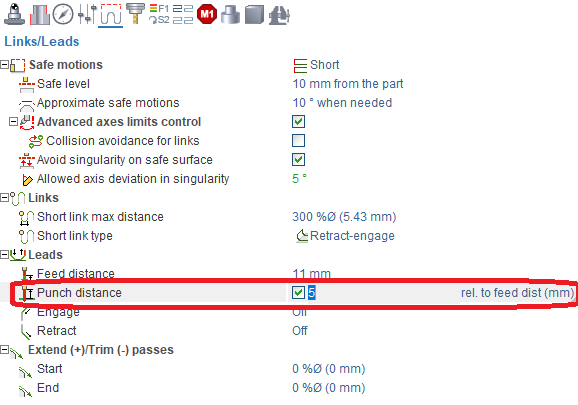
Also you can find information here .
New feed types
Approach from safe surface
Return to safe surface
Transition on safe surface
Long next
Replaced Engage and Plunge feed with Approach feed in many operations.
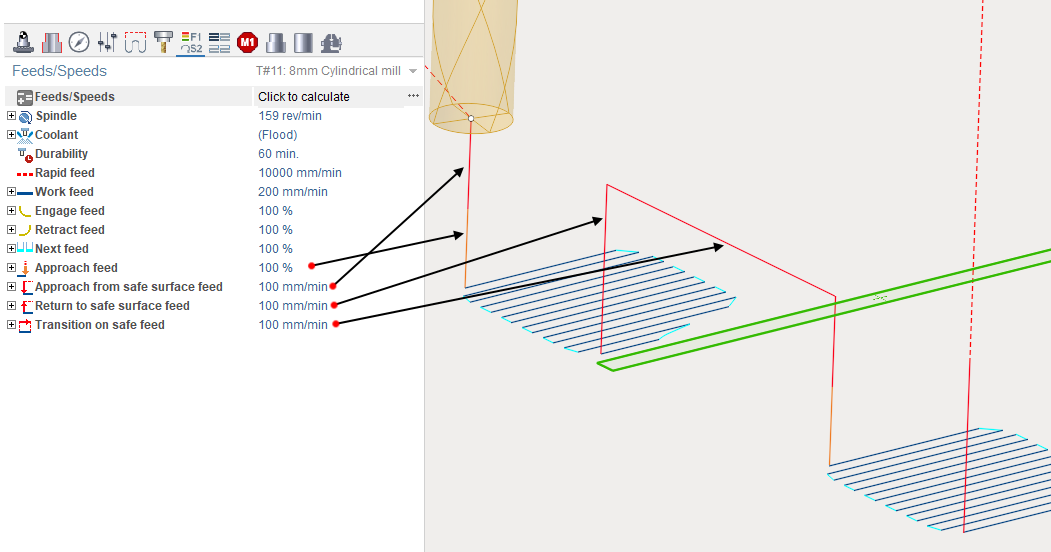
5D Contour now generates up to 6D toolpaths
5d Contour operation is adapted for 6d toolpath. The operation has changed the "links/leads" tab.
New feeds control feature for 5D Contouring
This function allows you to control the feed rate in a limited range for a 5D Contour operation.
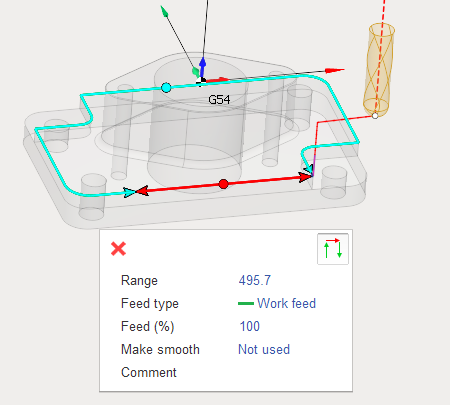
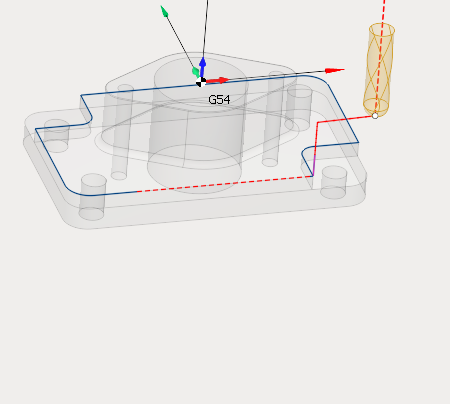
Adaptive lathe operation
More than 2 times faster than traditional lathe grooving operation. This is achieved due to the high work speed and the optimized tool path. It uses one tooltip tool. Read details here.
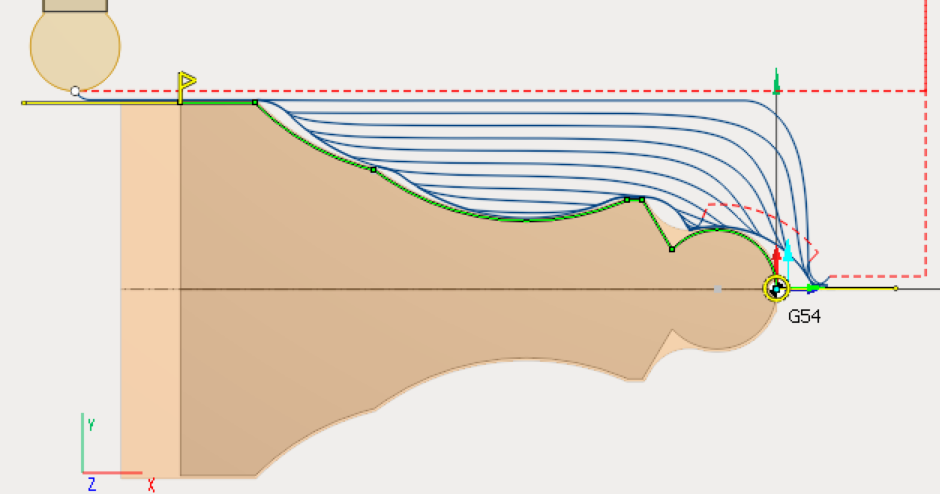
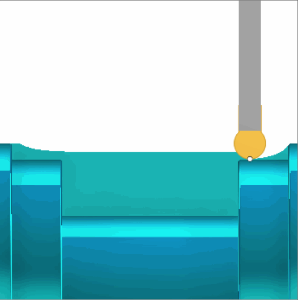
Start Point for Face Milling operation
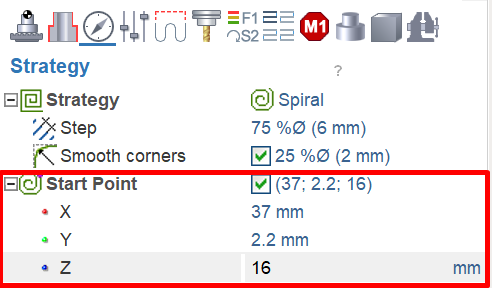
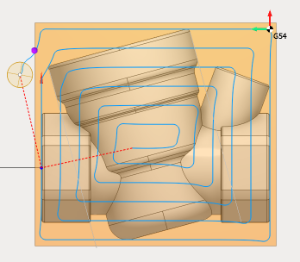
New CLData command properties window
In the window you can see the parameters related to the selected command. It is also possible to edit these parameters (you must turn off the "Read only" mode).
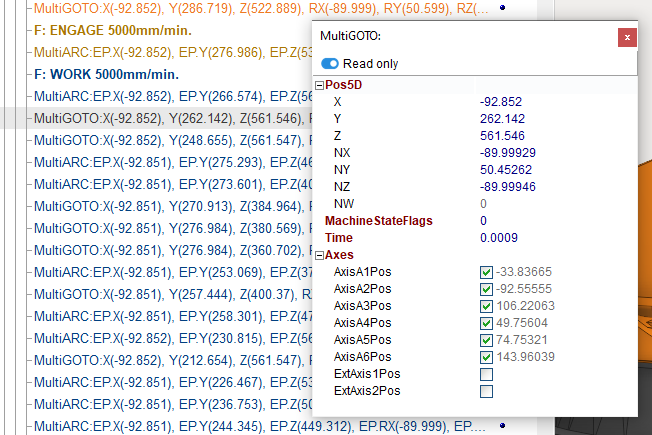
Updated set of commands for manual addition
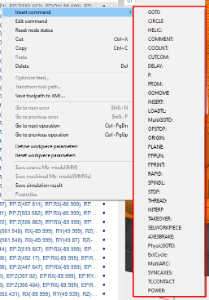
New CAD import capabilities
Updated CADs Addons
|
CAD Software |
Version |
|
Alibre Design |
Up to V22 SP2 |
|
Inventor |
Up to 2021 |
|
IronCAD |
Up to 2021 SP1, only toolbar |
|
Kompas 3D |
Up to 19.0 |
|
SolidEdge |
Up to 2021 |
|
SOLIDWORKS |
Up to 2021 SP2 |
|
ZW3D |
Up to 2021 |
Updated Built-in Importers:
|
Internal Importer |
Version |
|
Parasolid (XTReader) |
Up to 33 |
|
SOLIDWORKS (SWReader) |
Up to SOLIDWORKS 2021 |
New interpreters for G-code based simulation and verification
New interpreters:
ABB robot
Global control
Okuma OSP-P300
New G-code based lathe operation
For use in a turning tool in G-code based operation, a new 'G-code based lathe' operation has been added. Operation located in <Auxiliary> list. G-code based lathe operation supports only turning tool. Otherwise, it is similar to 'G-code based milling operation'.
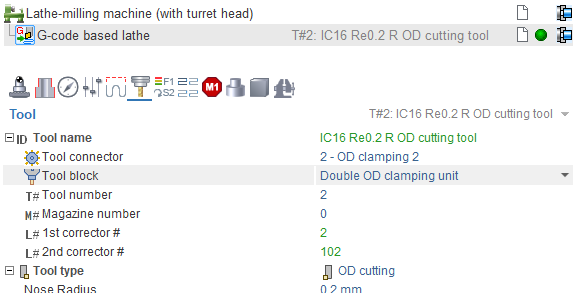
G-code based operation improvements
Unrecognized commands of the NC-program
Commands, unrecognized by interpreter, сan be added to the toolpath as the INSERT command text. For later use in the postprocessor. For example, to control additional equipment: laser, additional machine axes, cooling.

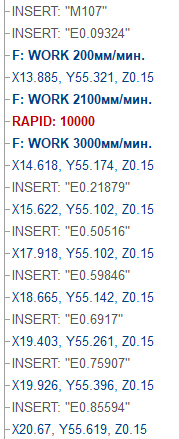
Arbitrary compensation value for tool radius
Added the ability to disable or set an arbitrary compensation value on the tool radius.
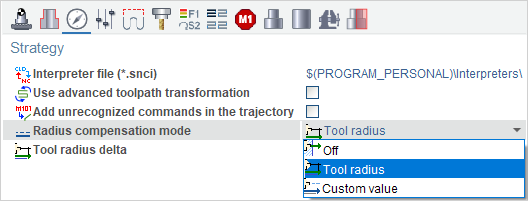
A popup hint displaying command descriptions, machine processing time, and a complete list of errors for the toolpath of the current block
After a slight delay of the mouse pointer over the line with the NC program text, a popup hint shows a description of the associated nodes of the trajectory tree (CLData commands).
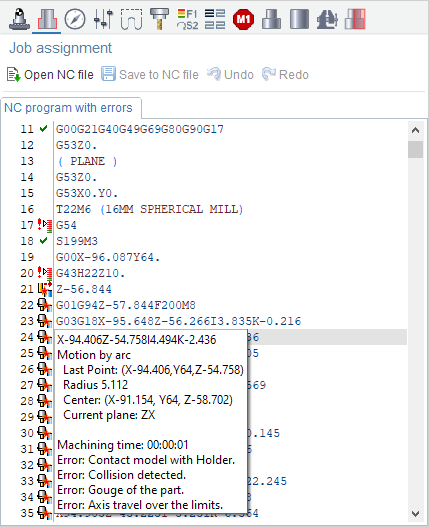
Context menu for working with text
The main actions for working with text are now also available from the context menu, which can be called up by right-clicking in the text editor area of the <Job assignment> parameters panel for G-code based operations.
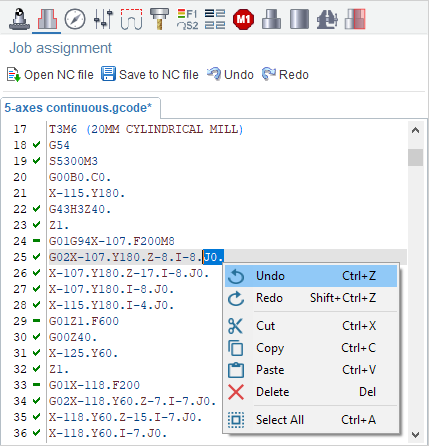
New version of ModuleWorks
The new version 12.2020 of the ModuleWorks' 5X kernel was integrated
